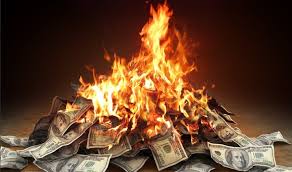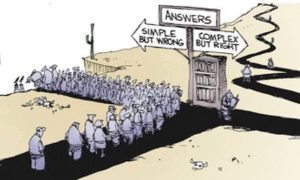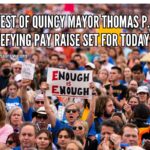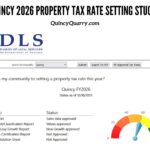– News about Quincy from Quincy Quarry News with commentary added.
Quincy 2019 property tax levy set and local homeowners to be Q’ed yet again.
Last night the City of Quincy City Council approved the Koch Maladministration’s recommendations for setting local property tax rates 2019.
As usual, the Maladministration’s presentation was fraught with the usual array of Koch and mirrors.
Key was the focus on homeowners looking at an average 2.09% increase in their tax bills next year.
Even so, several on the City Council still questioned why with all of recent new development in Quincy that were local tax bills continuing to go up.
Overlooked, however, was the real beef: how Quincy’s residential property tax bills are higher than many adjacent and/or peer communities.
What is key to understand is how Prop 2 1/2 plays out over time locally.
As the math is bit complicated, such in turn makes it easy for the Koch Maladministration to then spin things.
In the case of Quincy, while local property taxes could go up by around ten percent before hitting the local Prop 2 1/2 limit, Quincy homeowners pay around twenty percent more than do homeowners with identical assessed in at their respective Prop 2 1/2 tax levy limits in Braintree and Weymouth.
Similarly, a Boston homeowner paying the roughly the same annual property tax bill as the average amount in Quincy on a residence with a roughly two-thirds greater assessed value than the average assessed value of a residence in Quincy.
Further, while the Koch Maladministration yet again tried to downplay the upcoming increases in local tax bills, it failed to note the fact that during its tenure in office it has increased annual City spending by twice the rate of inflation.
Granted, school spending hsa been held to annual increases to the rate of inflation, spending in the rest of the city’s operations has increased at roughly three times the rate of inflation.
Even worse, local taxpayers are looking to have to cover the nut on even greater increases in annual debt service costs in future years.
Additionally, so too also soaring are mandated payments so as to endeavor to mitigate the city’s woeful pension funding shortfalls as well as for as far into the future as flinty-eyed bean counters can foresee.

















The ongoing shell game: If property values remain constant or fall, the tax rate goes up. If the tax rate stays the same or drops, the city raises property evaluations.
The first rule of this game is: You cannot win.